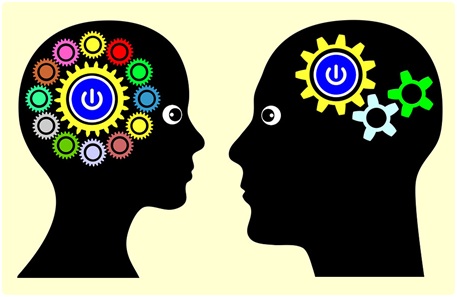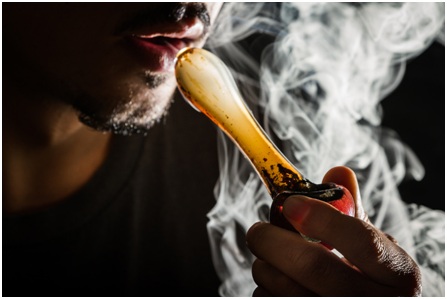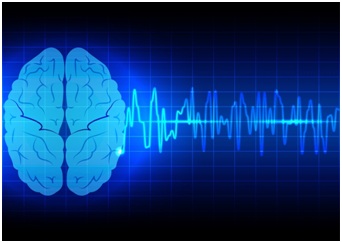
Cognition
runs every human action. Cognition initiates processes like learning,
memory, problem solving. Skills and abilities are the metrics used to
read and assess cognition.
Dr. Pascale Michelon offers
an example: “answering the telephone involves perception (hearing the
ring tone), decision taking (answering or not), motor skill (lifting the
receiver), language skills (talking and understanding language), social
skills (interpreting tone of voice and interacting properly with
another human being).”
Research
locates cognition in the brain. It sends signals through a person’s
neurological networks. The main cognitive functions are Perception,
Attention, Memory, Motor Skills, Language, Visual and Spatial
Processing, and Executive Functions.
Physical
injury, emotional distress, hormonal imbalance, ageing, and medical
conditions like Multiple Sclerosis and Alzheimer’s Disease, they all
contribute to cerebral malfunctioning. And, a decline in cognitive
skills is a symptom of that malfunctioning.
It raises the issue of cannabis use and your cognitive abilities; that is, do people perform worse on cannabis?

The research on the cannabis effect on cognitive abilities is mixed. For example, a 1986 study by J.B. Murray available
at the U.S. National Library of Medicine of the National Institutes of
Health reports, “marijuana intoxication definitely hinders attention,
long-term memory storage, and psychomotor skills involved in driving a
car or flying a plane.”
Deep 2001 research by Carl L. Hart, Ph.D., and others of the New York State Psychiatric Institute and Department of Psychiatry at Columbia University concluded:
- Subjective ratings and heart rate were significantly elevated after use of D9-THC.
- Cognitive performance was minimally affected following acute marijuana smoking.
- Participants required more time to complete cognitive tests following a high D9-THC concentration cigarette, but their test accuracy was unaffected.
- Heavy, daily, marijuana smokers do not fulfill the DSM-IV criterion for marijuana intoxication.
- Consistent slowing of cognitive performance may have significant behavioral effects under some circumstances requiring complex operations such as workplace tasks and the operation of machines and automobiles.
A 2004 research study by M.J. Lyons and others at
Boston University and published in Psychological Medicine concluded,
“Results of previous research examining long-term residual effects of
marijuana use on cognition are conflicting. A major methodological
limitation of prior studies is the inability to determine whether
differences between users and non-users are due to differences in
genetic vulnerability preceding drug use or due to the effects of the
drug.”
So, where’s the surprise?
The National Highway Transportation Safety Administration (NHTSA) clarifies
that any cannabis effects “vary with dose, route of administration,
experience of user, vulnerability to psychoactive effects, and setting
of use.”
According to the NHTSA,
for most casual users, those reactions might include: “relaxation,
euphoria, relaxed inhibitions, sense of well-being, disorientation,
altered time and space perception, lack of concentration, impaired
learning and memory, alterations in thought formation and expression,
drowsiness, sedation, mood changes such as panic reactions and paranoia,
and a more vivid sense of taste, sight, smell, and hearing.” Stronger
doses and doses of certain cannabis strains increase the effects.
Of
course, most people who use cannabis and its derivatives want some
change in their perception. They seek the euphoria, happiness, stress
relief, and relaxation. They are not upset by the altered states of
color and sound perception, time and spatial relationships, and more. It
is a pscyho-physical escape they want.
And,
those who depend even heavily of medical marijuana have traded concerns
for relief of their pain, stress, depression, spasms, and more.
Is performance worsened?
Cannabis does change performance. Whether cannabis users people perform “worse” may depend on the context.
Regular
marijuana smokers, for example, acknowledge some loss of memory and
learning. They will admit some loss of coordination and difficulty in
processing time and space, color and sound, and focusing with clarity
and attention.
Such
concerns put people and their work at risk when performing focused
tasks like machine work or vehicle operation. Working under the
influence of cannabis and marijuana presents some of the same risks as
working under the influence of alcohol.
On
the other hand, mild doses of mild strains can enhance the ability to
work because it relieves pain, stress, and depression. Some strains are
known to improve clear thinking and creativity.
What to make of the performance perception?

Time reported
on a 2011 study by Robert Tait at the Centre for Mental Health Research
at Australian National University: “The adverse impacts of cannabis use
on cognitive functions either appear to be related to pre-existing
factors or are reversible in this community cohort even after
potentially extended periods of use.”
The National Institute on Drug Abuse (NIDA) repeats
this: “Imaging studies of marijuana’s impact on brain structure in
humans have shown conflicting results.” Studies indicate regular use
from early adolescence alters brain development specific to capacity for
memory, learning, and impulse control. But, it also references studies
that find no structural differences in the brains of users and
non-users.
The
most logical lesson is that prolonged heavy use of some cannabis
strains may damage cognitive abilities, not unlike the prolonged heavy
use of any artificial stimulant. And, all this research ignores the
beneficial and therapeutic effects of CBD.
People
medicate with CBD in different ways because of its proven positive
neuro-chemical mechanism. In his now famous 2013 statement on cannabis
use, Dr. Sanjay Gupta pointed
out, “I calculated about 6% of the current U.S. marijuana studies
investigate the benefits of medical marijuana. The rest are designed to
investigate harm. That imbalance paints a highly-distorted picture.” He
puts it bluntly: while someone dies every 19 minutes from prescription
drug overdose, there are no records of death from marijuana overdose.
Even the NIDA recognizes
the beneficial effects of CBD use for epileptic seizures, cellular
inflammation, and neuropathic pain. It acts as an anti-analgesic,
anti-tumor, anti-anxiety, anti-psychotic, and an option for substance
abuse disorders. It even counters the psychoactive effects of THC and
alcohol with its neuroprotective elements.
Federal
restrictions significantly limit the research necessary to explore the
relationship between cannabis use and cognitive abilities. Anecdotal
evidence, user experience, and established research indicate that
short-term and light use of marijuana have little or no adverse effect.
Admittedly, there may be an immediate impact on some cognitive skills
which individual users should assess.
Heavy
use of the most powerful high THC-content may lead to lasting negative
effects over time as the heavy use of any powerful stimulant is likely
to do. But, none of the history denies the positive and curative therapy
in CBD use. High CBD and CBD-dominant cannabis is likely to improve the
cognitive performance of its many users.
"Allbud.com is your comprehensive guide to recreational and medical marijuana
dispensaries and strains where you could find nearby dispensaries with
reviews and/or explore over 3,000 strains with photos, videos and
reviews."
For more details checkout here :- https://www.allbud.com/learn/story/cannabis-and-our-cognitive-abilities-do-people-pre

0 comments:
Post a Comment